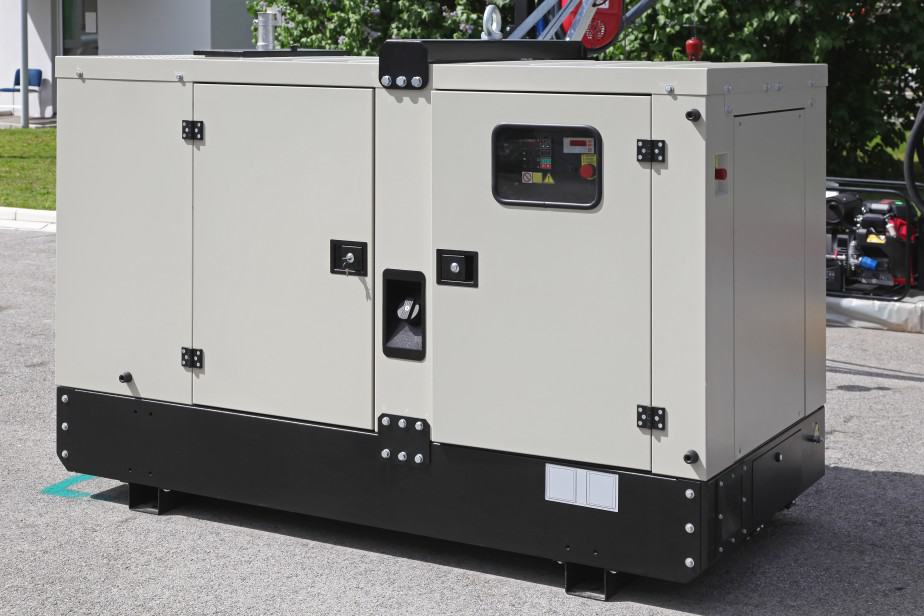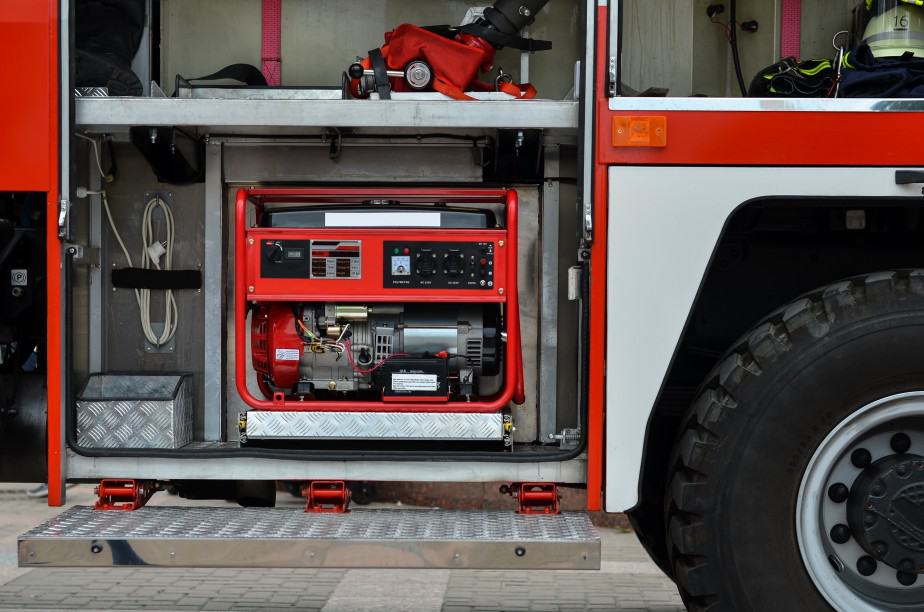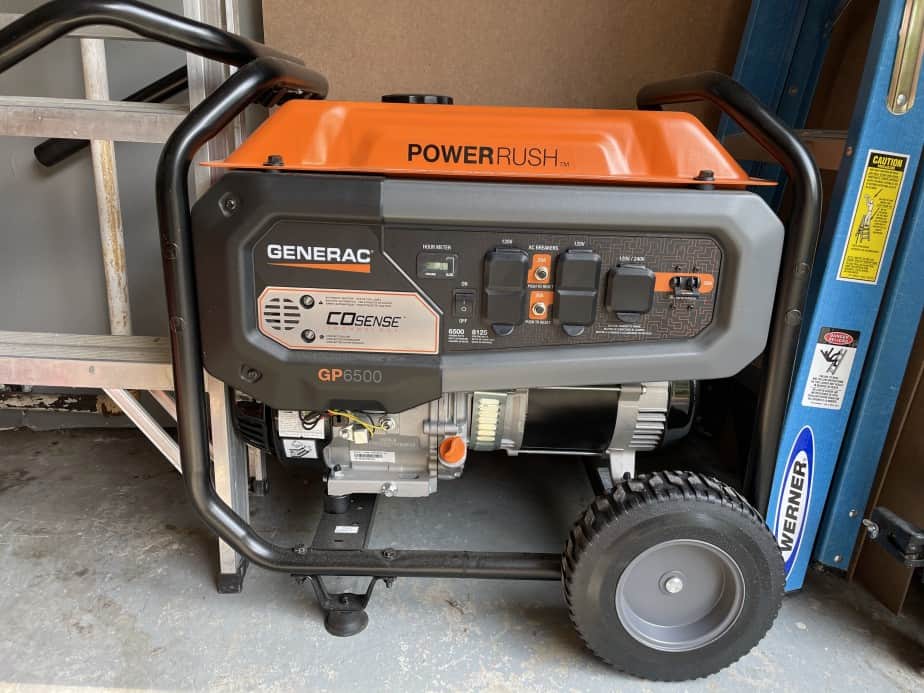Power generators might not be the first thing that comes to mind when you talk firefighting equipment, but they are an essential tool at every fire department. Generators are not only an important part of the gear that is taken out into the field to a fire or disaster scene but also play a role at the firehouse.
The fire department uses generators at the station and at emergency scenes. These include large generators to keep the fire station powered during power outages, generators built into the fire truck, and portable generators to get power to places where the fire truck cannot go to power necessary tools.
Firefighters and fire departments deal with life and death situations, which means that the equipment that they need to save lives and property must work when it is needed. Much of the equipment used by modern firefighters requires electricity to operate these important pieces of equipment that allow the fire department to function and the firefighters to work faster and more efficiently.
Table of Contents
Generators Used At The Fire Station
The fire station is the base of operations for the firefighters and the fire trucks. It can be considered the headquarters for the fire department, and it is from this location that the field operations of the fire department are coordinated and is the main point of contact for the community.

The fire station contains equipment that is crucial for the smooth operation coordination of the firefighters responding to emergency situations. It is important that this equipment remains functional, even during power blackouts, service disruptions from storms, or any other issue that could disrupt emergency operations.
Generators are an important part of the power backup and redundancy that is essential to have in place for a fire station. The fire station contains the following equipment that needs to be powered even if the grid power is down.
Equipment at the fire station that needs to be supplied with backup power includes the following.
- Radio equipment. Fire departments use radio equipment to stay in contact with their fire trucks and firefighters. This radio equipment needs to stay powered when there is a power blackout. This is particularly crucial during times of disaster when other communication methods in the city could be disrupted by grid outages, bad weather, or other potential grid-down events.
- Computer equipment. Much of the interdepartmental communication between various emergency services in a city, such as police, fire, medical serves, and emergency centers such as 911, is operated, managed, and coordinated via computer systems. These systems need to continue running during power outages.
- Air Extractors. The fire station houses the firefighting vehicles, which are usually powered by diesel engines. When the engines start up, they fill the space with diesel fumes that need to be extracted to keep the environment inside the fire station safe.
- Pumps to fill fire trucks. The fire department often stockpiles fuel and water to fill the firetrucks when other sources of fuel and water are not available. The pumps that pump fuel and water into the trucks are electricity powered and still need to work during emergency situations to re-fill trucks.
The generators that power all these types of service equipment during an emergency need to be of large enough capacity to power the entire station to keep the operation running smoothly.
These generators need to be large and are therefore normally large commercial, permanently mounted, power generation units that are located outside of the fire station building. They are also normally diesel-powered power plants.
Why Are Generators Built Into Fire Trucks?
Fire trucks are the mobile operations headquarters for the fire crew on that particular truck. The fire engine carries all the equipment that a firefighter needs out in the field to respond to any emergency.
Some of this equipment used in the field needs electricity to function, which requires the fire truck to have the capacity to generate this much-needed electricity.
Firefighters do not only respond to fires but also attend motor vehicle accident scenes, collapsed buildings after earthquakes, terrorist attacks, or heavy weather damage, and many other types of disaster scenes.

Firefighters are often seen as the muscle at such disaster scenes. As a result, they need a wide range of tools and equipment to deal with the situations that they encounter at these scenes in order to save lives.
The types of equipment that the generators on the fire truck need to power would include the following field equipment.
- Compressors for any pneumatic powered tools. Some of the rescue tools are pneumatic, such as the “jaws of life”, that are used to extract victims of motor vehicle accidents that are trapped inside their car.
- Power tools. Tools such as drills, angle grinders, and other power tools are essential for getting through obstacles in order to reach injured or trapped people.
- Scene lighting. This is a big one. Firefighters need powerful lights to light up emergency scenes so that they have enough light to do their work at night.
The generators on the fire trucks come in a variety of sizes and configurations, depending on the size and specifications of the truck. These generators are sometimes called apparatus-based generators and are dedicated to powering specific equipment needed by the crew.
Some power generation units use the power of the fire truck’s engine to generate the electricity needed, which is one of many reasons why fire trucks are constantly running while they are on scene.
Other power generators have their own engine, independent of the fire truck engine. These generators are often larger and more powerful than the ones powered by the truck engine and allow the fire truck to be turned off at the scene.
There are small generators fitted into side compartments to power smaller pieces of equipment such as lights, as well as heavier duty generators that are built into larger compartments, many times located on the top of the truck.
Portable On-Scene Generators Used By Firefighters
Even though fire trucks have generators onboard the vehicle to provide electricity for the tools needed by the firefighters on scene, it is not always practical to use these truck-based generators.
The generators have some limitations in some emergency situations. If the fire truck cannot get close enough to where the equipment needs to be used, then it can be a problem to get the tools to where they are needed.
This could be due to unstable ground that cannot support the weight of the truck or obstacles that are blocking the path of the truck.
In these cases, the firefighters make use of portable generators to get the power closer to the emergency scene, where they need to use the required tools. In fact here’s a photo of the portable generator I have and use at my home (I love Generac generators).

They may use these portable generators to power drills, grinders, and other cutting tools, provide lighting, or power air compressors for pneumatic lift bags.
Finally, electricity is an important energy source that allows the fire department to continue performing its valuable service, even when grid electricity is not available. From the firehouse to the fire trucks and even beyond the range of the trucks, power generators are an important piece of firefighting equipment.
The generators are used to power the fire station when grid power is not available, while generators built into fire trucks deliver electricity to various tools and equipment at disaster scenes.
Where the fire trucks cannot reach, portable power generators are used to take the electricity to locations on the scene where it is needed.
People Also Ask:
Why do fire trucks have generators?
Typically, fire trucks will have portable generators or generators built into the truck to power many of the tools and equipment carried on the truck. Scene lighting is important on any emergency scene and many scene lights require the use of a generator to provide electricity.
Do fire stations have backup generators?
Generally, fire departments will have a backup generator system. This is to ensure that fire departments are able to receive and respond to emergencies even if there is a power outage.